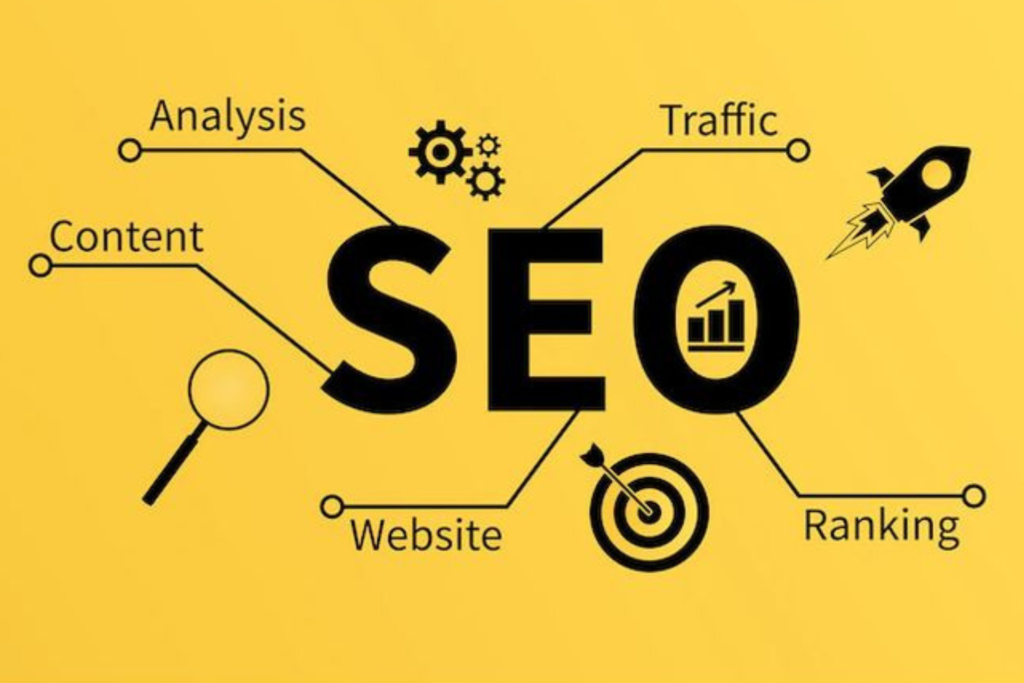Search engine optimisation is defined as the act of optimising a website in an endeavour to make it more easily found by search engines especially Google, through increasing positioning of the website on search engine result pages (SERPs). It encompasses bending of content, enhancement of site structure as well as use of keywords which make an individual webpage more relevant and authoritative. SEO’s purpose is to target free traffic by making search engines comprehend, index and search a specific site well enough to fetch users the right information they need. SEO means higher visibility and more traffic which results in improving the users’ interaction with the site..
The Future of SEO: Trends and Strategies for 2024 and Beyond
With time, everyone looks forward into the future and with the year, 2024 in mind, SEO still remains an important trend that every business entity must embrace. To remain effective in the market, there is need to know how the search engines work and how to optimize a website. This means that by 2024 there will be profound changes in how search engine rates content, which is why it will be more critical than ever to stick to high quality. Any SEO technique cannot work if the business doesn’t understand the functioning or mechanics of how search engines work as this is important in implementing the rank. Over time and as the search engine becomes more advanced the business who invest on search engine optimization will be the one to benefit. Integrating SEO into your marketing plans means that your site meets the requirements of how search engine works hence attracting more organic traffic.
SEO Best Practices: Boosting Your Website’s Visibility
To enhance the web visibility of your site, using principles of Search Engine Optimization (SEO) becomes unavoidable. Now, a good page optimization means that not only the webpage itself contains all the necessary elements that will allow it occupy the niche at the top of the search results but also contains high-quality content. A major component of SEO strategy is the utilization of internal links to assist a user in finding what they need on the website while increasing the site’s ranking. When people focus on that technical aspect of SEO, they make sure that their webpage can be indexed easily by search engine crawlers so that the search engines themselves will index your content faster. The internal links should be placed as well, to help improve the user experience in the long run and support growth of the web presence. Lacking optimization of these technical SEO factors might make your webpage rather uncompetitive in terms of visibility, which is why improving SEO across all aspects is vital for increasing your web traffic.
On-Page vs. Off-Page SEO: Understanding the Differences
Search engine optimization (SEO) can be divided into two key areas: on-page and off-page. Neither is less important because both are vital in making traffic to your sites and consequently making sales; the major difference is while SEO focuses on the overall stream to your site, SMM is concentrated on a particular topic. On-page SEO is therefore concerned with altering your page to make it more friendly to spiders as well as search engines. This ranges from the choice of suitable keyword to enhance the user experience. On the other hand, off-page SEO refers to the practice of attaining other marketing techniques such as link building and social media marketing in order to enhance the credibility of your page over the internet. While using on page SEO helps in enhancing the quality of the particular web pages, off page SEO strengthens authority and uniqueness and brings the traffic from other sources of the world wide web. The goal is to capitalize on your benefits and attract as many potential buyers as possible, including those who performed a search query on any keyword but currently are on your site’s page, so in addition to on-site optimization, off-site optimization should not be ignored.
Mastering SEO Tools: Essential Resources for Digital Marketers
SEO tools are critical in today’s competitive world and can benefit digital marketer if they export insights about competitors’ performance. These tools in essence work as a manual charting specific features as regards keyword position, website performance and competition. Using SEO tools, marketers can export useful information that informs them on what they should do and where to go. Updating relevant information on the internet is a crucial factor in identifying new strategies in SEO that will help businesses remain relevant in their market competition.
How SEO Impacts Online Traffic and Business Growth
Of all the internet marketing strategies, Search Engine Optimization (SEO) remains indispensable since it directs traffic to business websites. To enhance the number of visits to the sites, through search engine results, companies should ensure that all the business pages are well the optimised through proper SEO strategies and proper research on keywords. Any form of push towards the higher ranking of the website on the search engine results itself contributes to more traffic, conversion and revenues. Search engine optimization means that a particular page is marketed to the right people, which makes businesses expand and remain afloat in a competitive world. Everyday SEO work enables companies to adapt and continue to occupy space in the search engine results pages.
Common SEO Mistakes and How to Avoid Them for Better Rankings
Many businesses miss key opportunities in search engine optimization (SEO) by making avoidable mistakes. One common error is failing to update existing content, which results in lost chances to take advantage of fresh SEO strategies. Another frequent issue is not taking time to properly learn about search engine optimization best practices, leading to suboptimal results. By regularly optimizing existing content and seizing every opportunity to improve, businesses can enhance their rankings and performance. The key is to take a proactive approach and continually learn how to maximize the benefits of search engine optimization.
conclusion
Finally, SEO has proven vital for website marketing as it ensures a website occupies better or healthier positions in search results to attract organic traffic. The methods such as keywords’ optimization, content quality, site structure help businesses to get higher positions on search pages and attract more users. SEO is a continuous process which means its updates according to the ever-changing Search engine algorithms and users. Finally, the mastery of SEO guarantees sustainable development since different companies remain relevant in the current and future online market.


